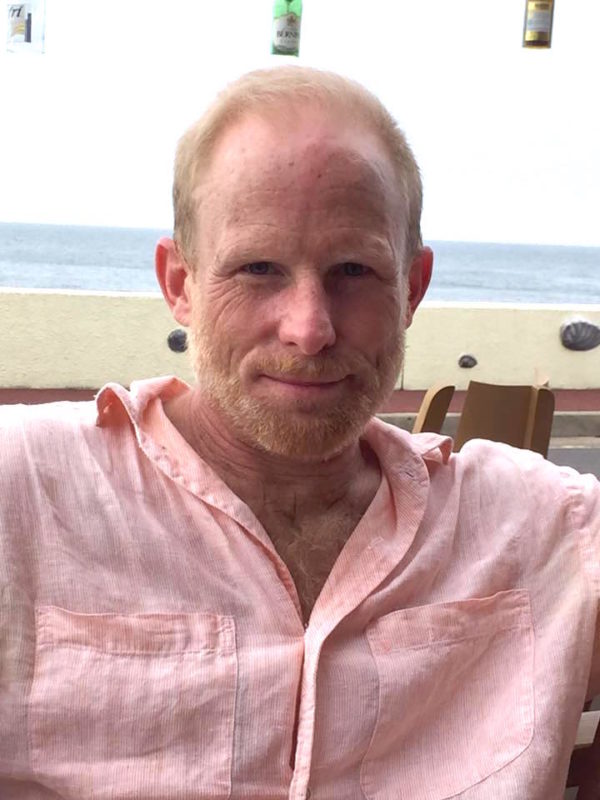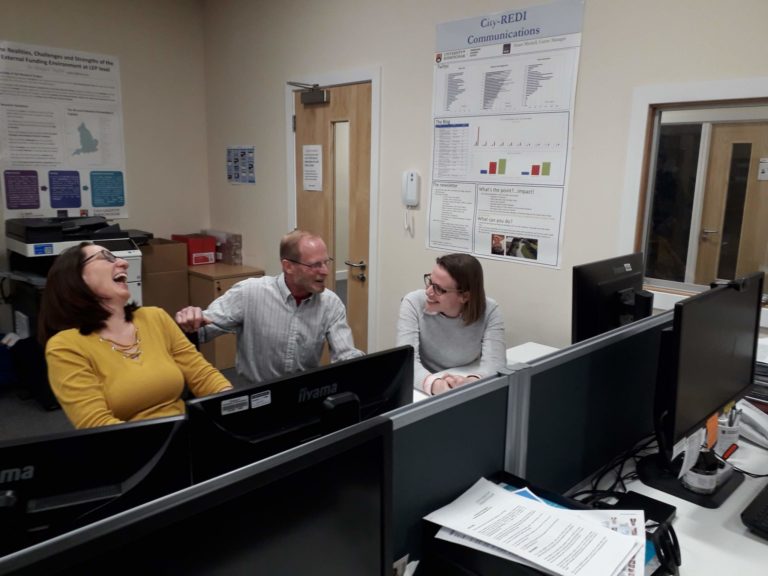
Why do some communities thrive, and others struggle?
This is one of the foundational questions behind the growing field of regional economics, which seeks to understand why economic activity takes place where it does.
“During the early days of the tech boom, many economists thought that IT was going to level the playing field, spreading wealth, employment, and opportunity equally across the United States,” shares leading regional economist and Colorado State University economics professor, Stephan Weiler. “Actually, it did just the opposite. People who already had a lot gained even more. Those not doing well were left further behind.”
Whether in the United Kingdom’s West Midlands or Colorado’s Western Slope, as the economic divide between the rich and the poor widens on a global scale, regional pockets of poverty and economic instability also grow.
This research into regional economics is especially important for the state of Colorado, which is home to drastic economic disparities between those with the means to afford affluent communities in Denver and Fort Collins, and those living in economically stressed areas on the Western Slope, Eastern Plains, and southern Colorado. In alignment with CSU’s land-grant mission, the Department of Economics has made regional economics one of the three department research pillars, gaining international renown for their scholarship.
Weiler’s career has been devoted to developing strategies to spark economic vitality in struggling rural and urban areas through the communities’ own innovative and entrepreneurial capacities. In his focal interest in Colorado, he analyzes the success found in regions like Denver and develops initiatives to help spread it to economically marginalized rural communities. This focus is the driving force behind a lifetime of research and community engagement in Africa, Asia, Europe, Appalachia, and the American West.
 In his role as William Morgan Chair, Weiler created the Regional Economic Development Institute (REDI) at CSU, leading a team of faculty and graduate students, who study struggling and thriving communities, taking lessons from analyses across all regions and applying them to regions of the state and country in need of support. Through the connections built with local, regional, and state leaders, REDI’s research is quickly put into action, making a meaningful impact to help struggling Colorado communities repair their local economy.
In his role as William Morgan Chair, Weiler created the Regional Economic Development Institute (REDI) at CSU, leading a team of faculty and graduate students, who study struggling and thriving communities, taking lessons from analyses across all regions and applying them to regions of the state and country in need of support. Through the connections built with local, regional, and state leaders, REDI’s research is quickly put into action, making a meaningful impact to help struggling Colorado communities repair their local economy.
This desire to put his research to work in service of others also motivates Weiler’s undergraduate students and is what makes his Economics Senior Capstone Seminar so popular among Economics majors. With a focus on service-learning, his students create and implement applied projects for rural communities in Colorado. They work as consulting teams, contacting local and state authorities to learn about their assigned area’s greatest community needs. Throughout the semester, students conduct research, develop reports, and present recommendations. The course is a culmination of their economics studies, taking lessons learned in the classroom and showing them real-world applications with real impact.
“I gravitated toward the field of regional economics because we are solving real-world problems through our research. I strongly believe in CSU’s land-grant mission and the capstone course teaches my students how to do research and how to make it matter,” says Weiler.
The field of regional economics is still young and growing rapidly. Beyond the regional impact that REDI and CSU students are having on Colorado communities, Weiler’s work has also served to guide communities around the world.

This semester, Weiler is utilizing his Fulbright Distinguished Research Chair award to collaborate with the City-Region Economic Development Institute (City-REDI) at the Birmingham Business School in the United Kingdom. Birmingham, England was a once-thriving industrial town that saw a devastating economic downturn in the middle of the last century. Recent efforts by local government have helped to spark redevelopment in the city center much in the way LoDo revived Denver’s core. Yet there is still more work needed to strengthen the economy of the second largest city in England. Weiler’s team is providing fresh, timely, and cutting-edge information taken from case studies, like Birmingham, to enhance economic growth and development prospects for regions across the globe.
Weiler wants to make his research matter and encourages his students to do the same. Determined to continue this important work, Weiler and his wife, Kari, created the Kari and Stephan Weiler Doctoral Fellowship in Regional Economics Endowment. Established through an estate gift, the fund will support economics graduate students who focus their scholarship on regional economics, enabling them to focus on finalizing their dissertation, making an impact in the classroom, through their research, and engaging and informing communities facing economic challenges.
“Before I met Kari and gained two wonderful step-children, I didn’t have children of my own. I came to think of my economics students as my children. Leaving this gift in my will is like giving a gift to my children, enabling them to succeed long after I’m gone and to continue this important work,” shares Weiler.
Kari, a former financial advisor who often advised her clients on their estate plans, was equally excited to provide this opportunity to future generations of students. Also an economics major, Kari experienced how leveling education can be for students from all socioeconomic backgrounds and was eager to share the gift of a college degree with future students.
“This opportunity is a gift to us as well as the students. We can continue Stephan’s legacy in regional economics, going beyond our lifetime to help people,” says Kari. “As an endowment, this fund is going to grow over time, making a bigger impact once it is finally realized.”
The Weilers hope that the Kari and Stephan Weiler Doctoral Fellowship in Regional Economics Endowment will ensure that this important work continues to help people and communities for generations of students to come.
“Stephan’s impact on the department, the University, graduate students, and myself has been immense,” shares Luke Petach, current Economics Ph.D. candidate. “The endowment is yet another example of Stephan and Kari’s immense kindness, generosity, and dedication to the University.”